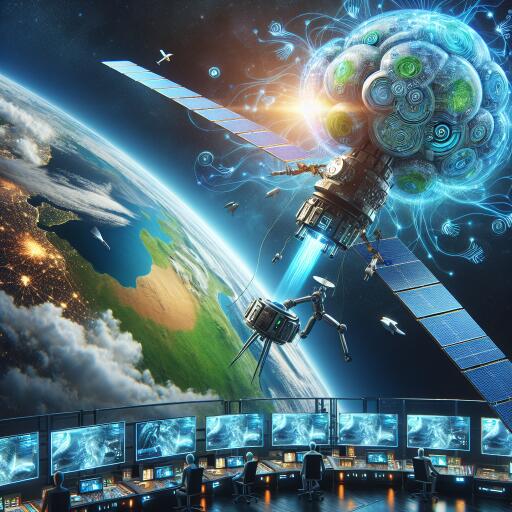AI in Earth observation: a force for good
The debate surrounding Artificial Intelligence (AI) is often marked by a mixture of excitement and apprehension. However, the realm of Earth observation is witnessing a profound positive shift thanks to the applications of this transformative technology. AI’s ability to process and analyze vast amounts of data is revolutionizing how we gather and interpret crucial information about our planet’s current state and its future.
In the landscape of technological advancements, AI stands out for its role in fostering societal and sustainable development. Through tools like generative AI, the horizon of possibilities is expanding, bringing into focus a future where AI’s potential continues to evolve in beneficial directions.
Expertise from within the European Space Agency (ESA) highlights AI’s invaluable contributions. Machine learning and AI are not just theoretical concepts but practical tools enhancing efficiency and paving the way for innovations in numerous fields, including Earth observation. These technologies are instrumental in tasks such as disease prevention and analyzing the infrastructure related to child development.
The Societal Impact of AI
AI catalyzes a synergy between human capabilities and automated processes. By taking over repetitive tasks, AI frees up human intellect and creativity for areas that demand emotional intelligence and intuition. This collaborative interaction between humans and machines is central to optimizing productivity and fostering advancements in various sectors.
Contrary to the fears of AI inducing job losses, the technology is viewed as a complementary asset that augments human skills and opens avenues for new career paths. It’s about harnessing AI as an ally to enhance human tasks rather than a replacement. Emphasizing the educational aspects, initiatives are underway at organizations like ESA to integrate machine learning and AI into the curriculum for young scientists and engineers, preparing them for a future where these technologies play a pivotal role.
Revolutionizing Earth Observation with AI
The integration of AI in Earth observation is a game-changer. From satellites equipped with AI processors for data filtering to the application of computer vision for detailed analysis of satellite imagery, AI is making significant strides in improving the accuracy and efficiency of data interpretation. This capability is crucial given the voluminous amounts of Earth observation data generated daily.
One of the standout applications is the ability of AI algorithms to identify and correct inaccuracies in global databases, such as pinpointing the locations of schools in remote areas. Furthermore, AI’s predictive power is being harnessed to forecast environmental and health-related phenomena, offering a new dimension to preemptive measures and crisis management.
Commercial Sector and AI: A Thriving Partnership
The commercial space sector has witnessed a surge in growth, thanks in part to AI. Start-ups and established companies alike are leveraging AI to tailor satellite data for a variety of end-users, from government agencies to the private sector. This not only improves real-time information flow but also enables the development of innovative business models.
Upcoming satellite missions underscore the integration of AI directly into space-based platforms, promising enhanced data processing capabilities and the potential for real-time application adjustments. The anticipation around such advancements indicates a vibrant future for commercial opportunities in and beyond the space industry.
Looking Towards the Future
The trajectory of AI in Earth observation is set to intersect with other emerging technologies, leading to comprehensive and multifaceted applications. Projects like digital twins of the Earth, powered by AI, are underway. These initiatives aim to create dynamic models that accurately reflect natural and human activities, offering predictive insights into environmental events and helping to strategize responses to various global challenges.
As AI continues to infiltrate Earth observation and various sectors, the focus will increasingly shift towards leveraging this technology to foster a greener, more sustainable world. Through enhanced decision-making capabilities and a deeper understanding of our planet, AI stands as a beacon of innovation and stewardship in the continuous effort to safeguard the Earth for future generations.









